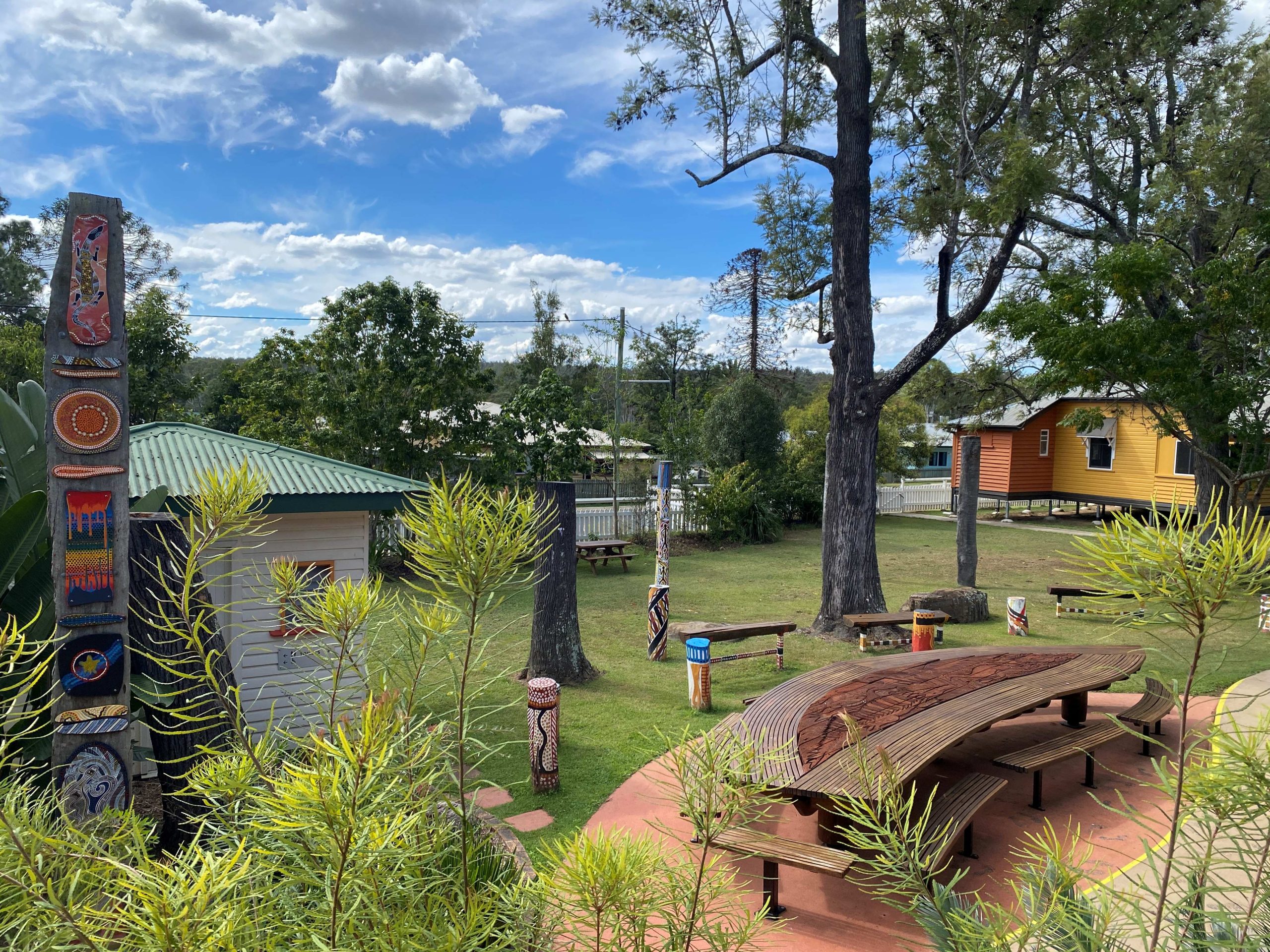We’ve been on the road for five and a bit weeks now, and have only days to do. The plan is that we will visit the Aboriginal community at Cherbourg and then the Esk show, before finally heading back to Brisbane, and a bed for the first time in six weeks.
After Miles we head off again across country, following more unsealed roads and forest tracks in an effort to squeeze that last ounce of four wheel driving out of this trip. The tracks are narrow and sometimes end in fences. They’re wet; something we haven’t really encountered before, and the woodland paths means no diversions. It’s fun again! The grown-up equivalent in splashing in muddy puddles in gumboots. The only penalty is washing it all off later.
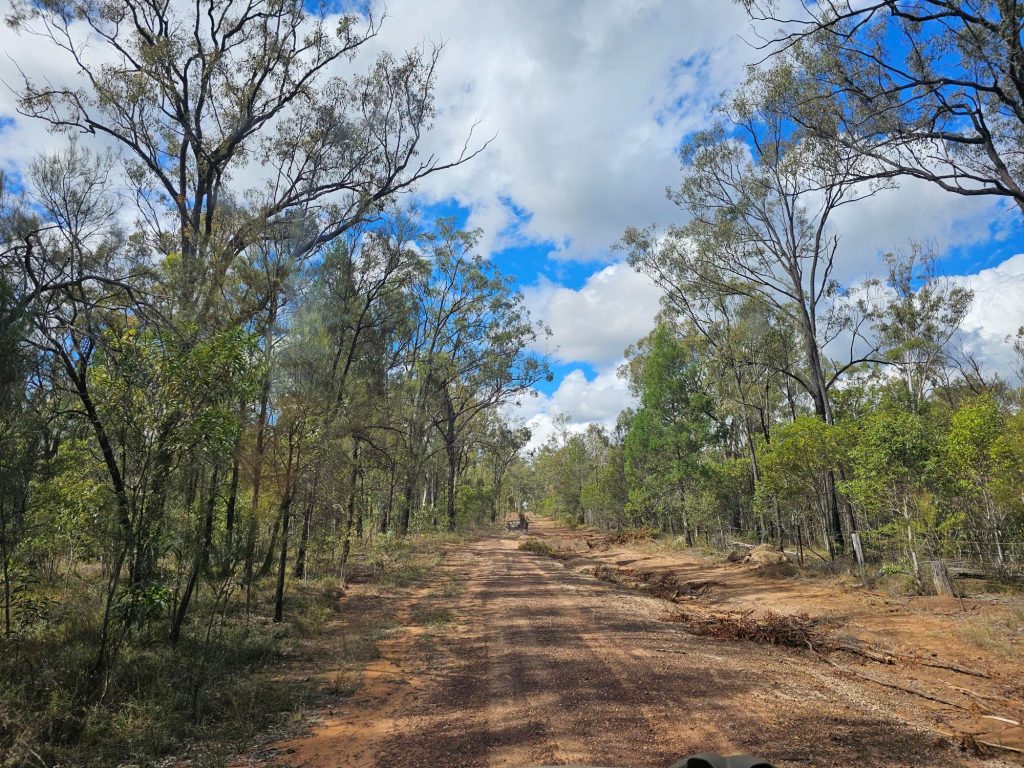
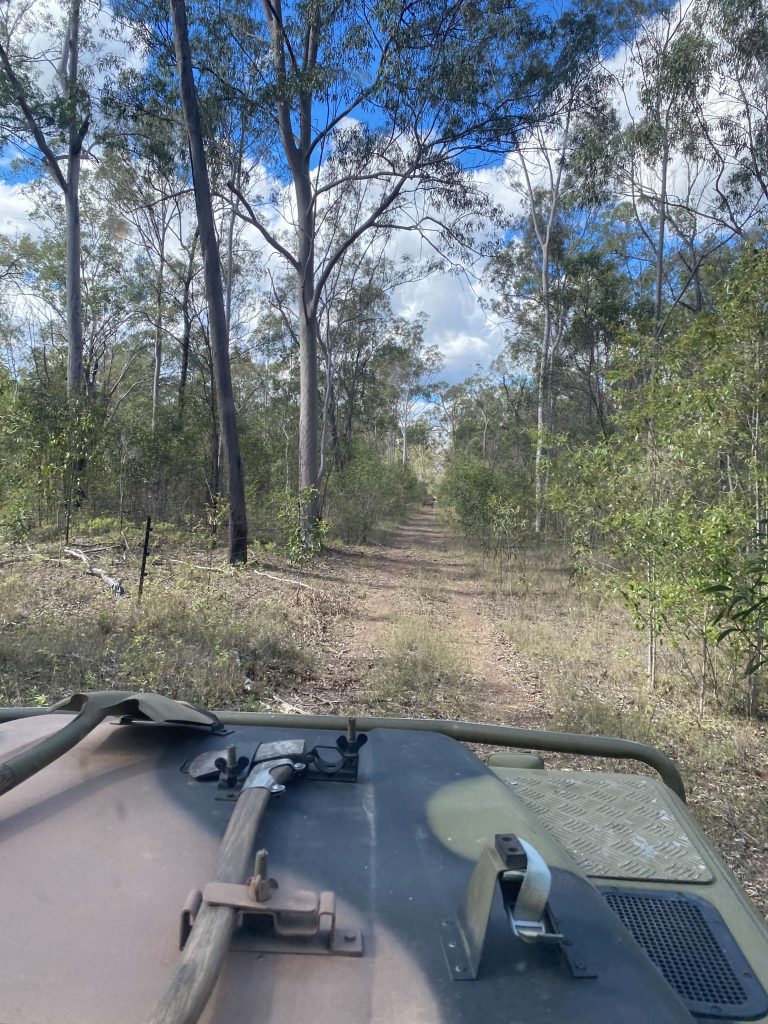
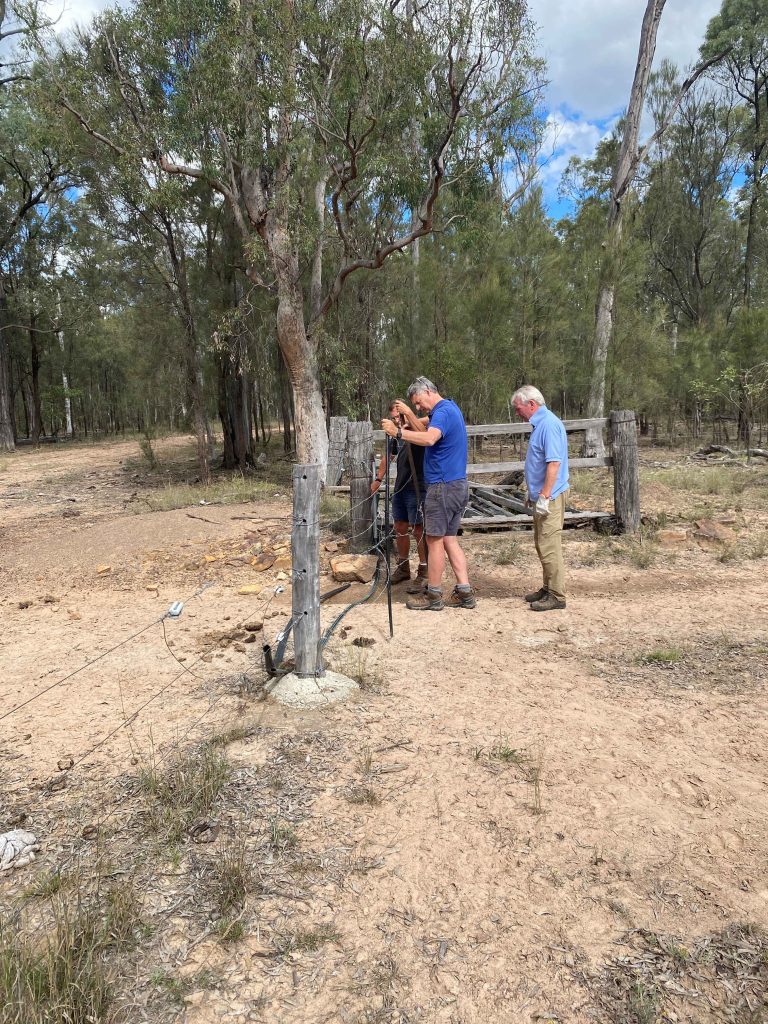
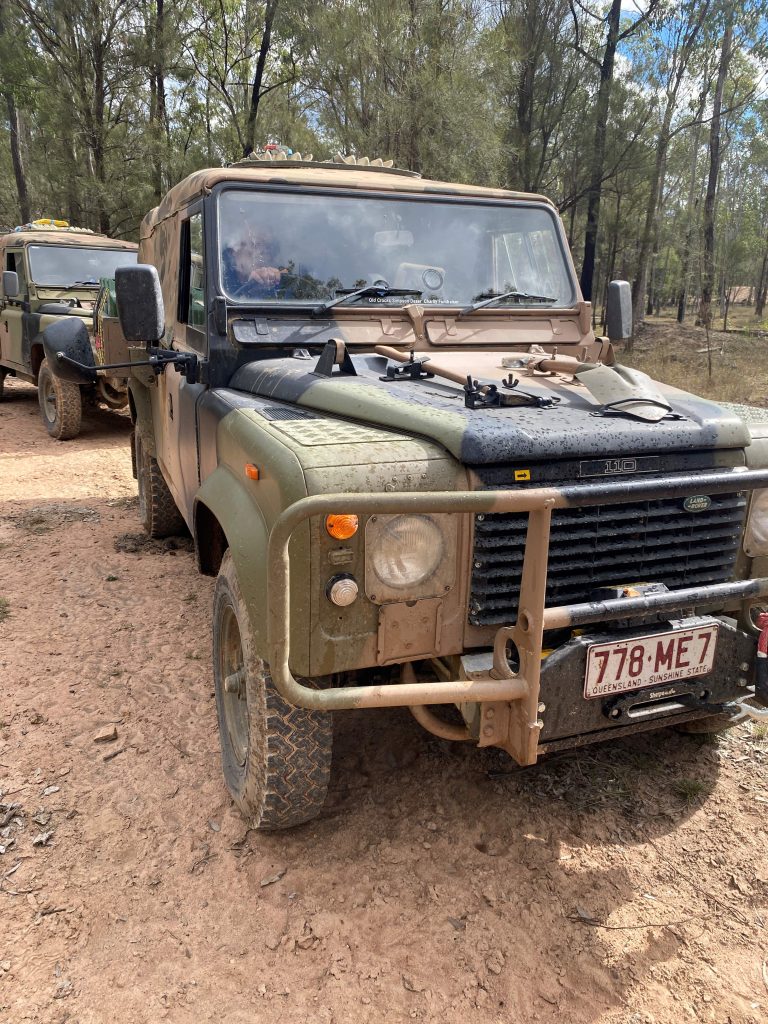
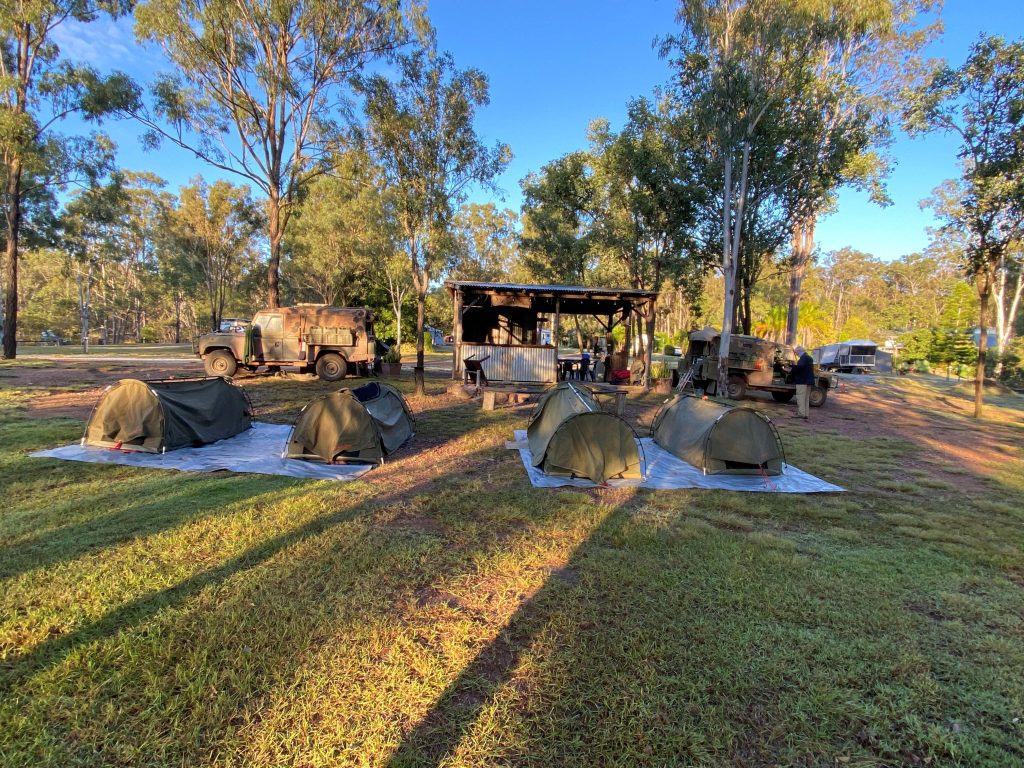
That night we camp in a bush campsite at Barambah, close to Cherbourg. Ducks, llamas and immaculate lawns and facilities.
The ablutions have a nice concrete path leading to them with slightly curved sides to keep tottering old men on track.
There’s an undercover camp kitchen which we occupy completely.
Good job, too. As we sit down to Guy’s supper of curried sausage and dahl, nature confounds the Bureau of Meteorology forecast of ‘No rain’ and chucks it down! There isn’t much rain on their radar, but what there is has found us – again!
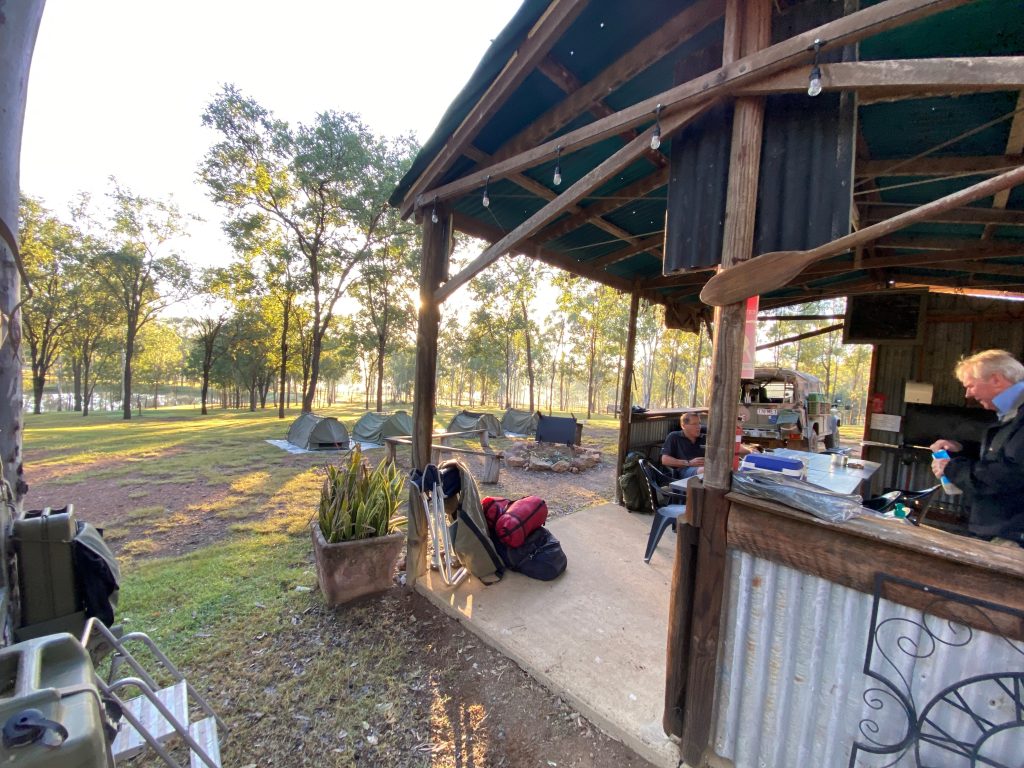
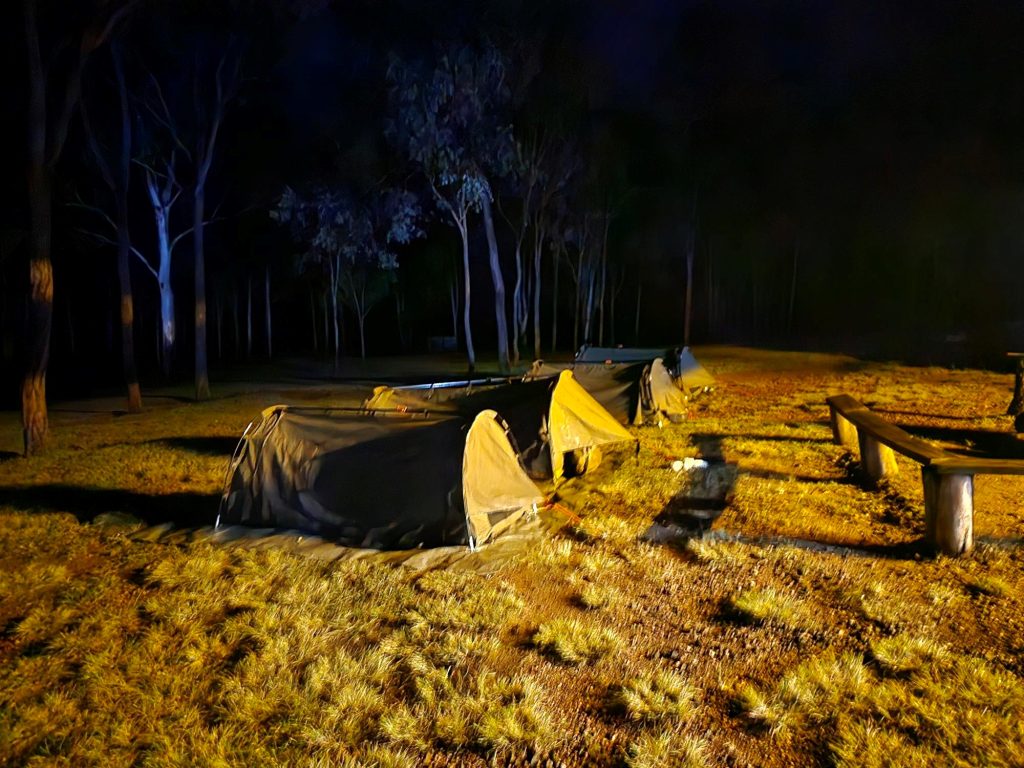
It’s only then that I realise that the nice concrete path leading to the loo isn’t that.
It’s a gutter and it’s pointing any rainwater and facility overflow right at our camp!
We creep into damp swags when the rain has gone, just hoping it doesn’t come back.
The next morning we have a late start. The sun appears, and everything is out to dry. Cherbourg, on arrival, is a tidy well-kept place. We find the Ration Shed – the community’s museum – and join a tour about the history.
Bonnie and Shane, the tour leaders, give different and insightful accounts of their own and their family’s history.
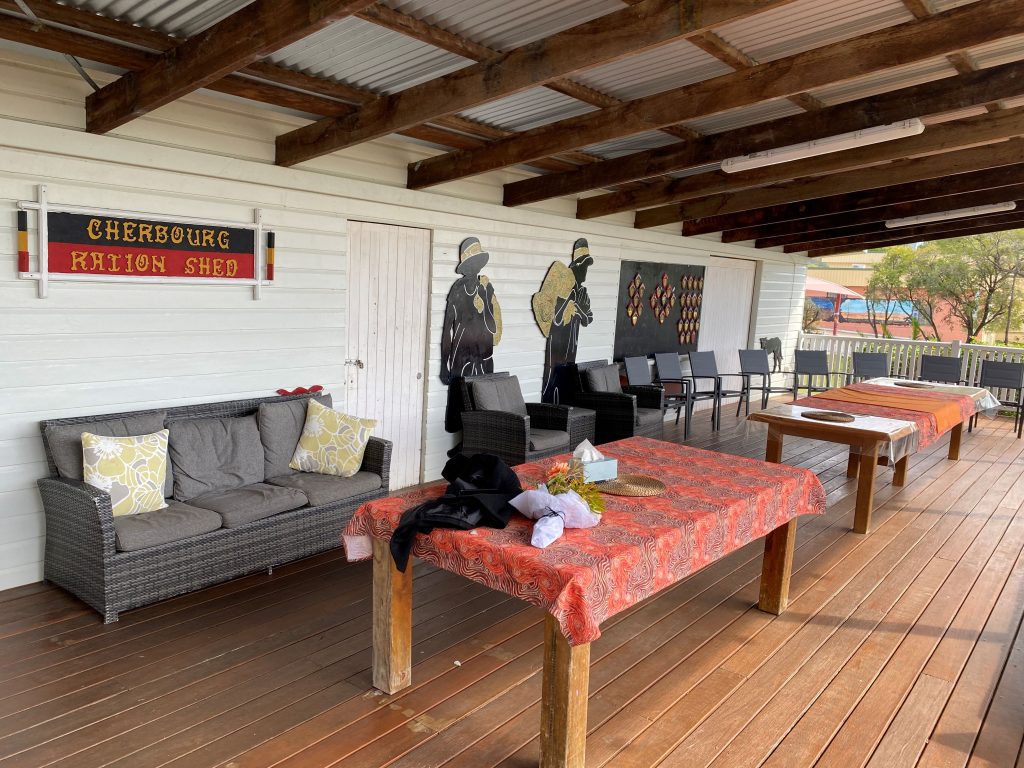
They talk openly of black fellas, white fellas and half-castes; the latter generally removed from their aboriginal families to help their assimilation into white society – the Stolen Generation.
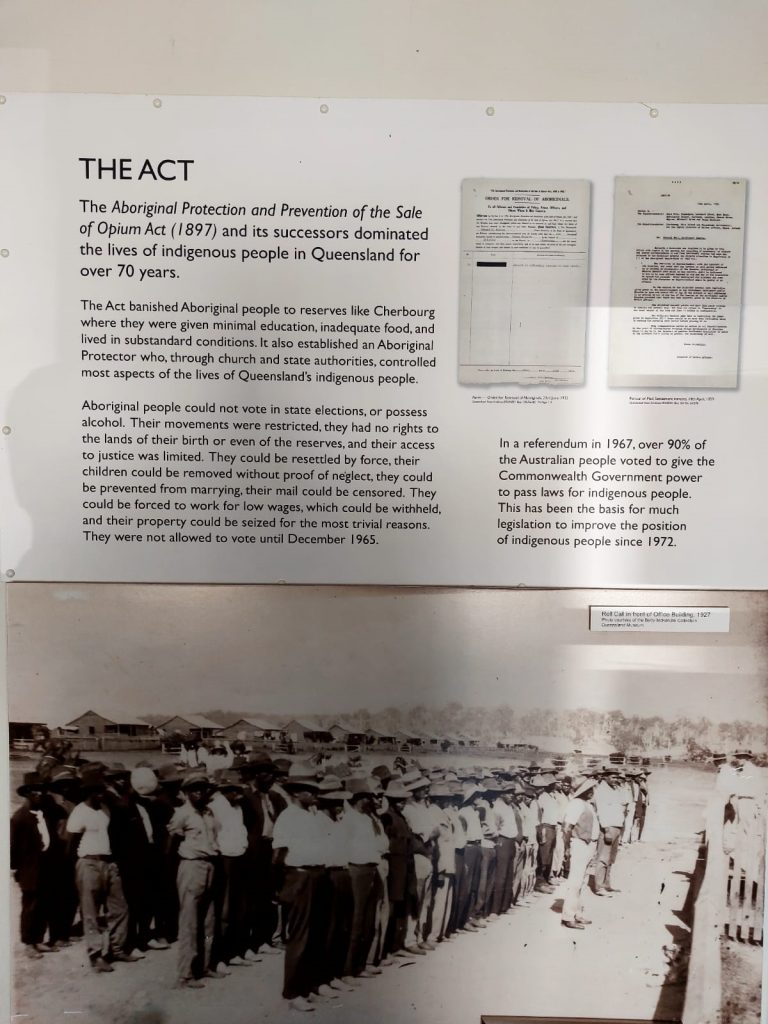
Some of the dates stick.
- 1904: Barambah’s emergence as a Government settlement under the Aboriginal Protection Act and the subsequent arrival of people from clans and tribes from all over Queensland and northern New South Wales. The dormitories that followed.
- 1932, when the name Barambah was changed to Cherbourg over confusion with mail delivery to a nearby property; ‘Barambah Station’.
- 1967; the year of the Federal referendum, where 90% of people voted to count Aboriginal and Torres Strait Islander peoples in the Census for the first time.
We tour the boys’ dormitory where there is a place for reflection. I’m struck by the similarity of the beds, the blankets and regimented boys saying their prayers on their knees to my English boarding prep school, aged 8.
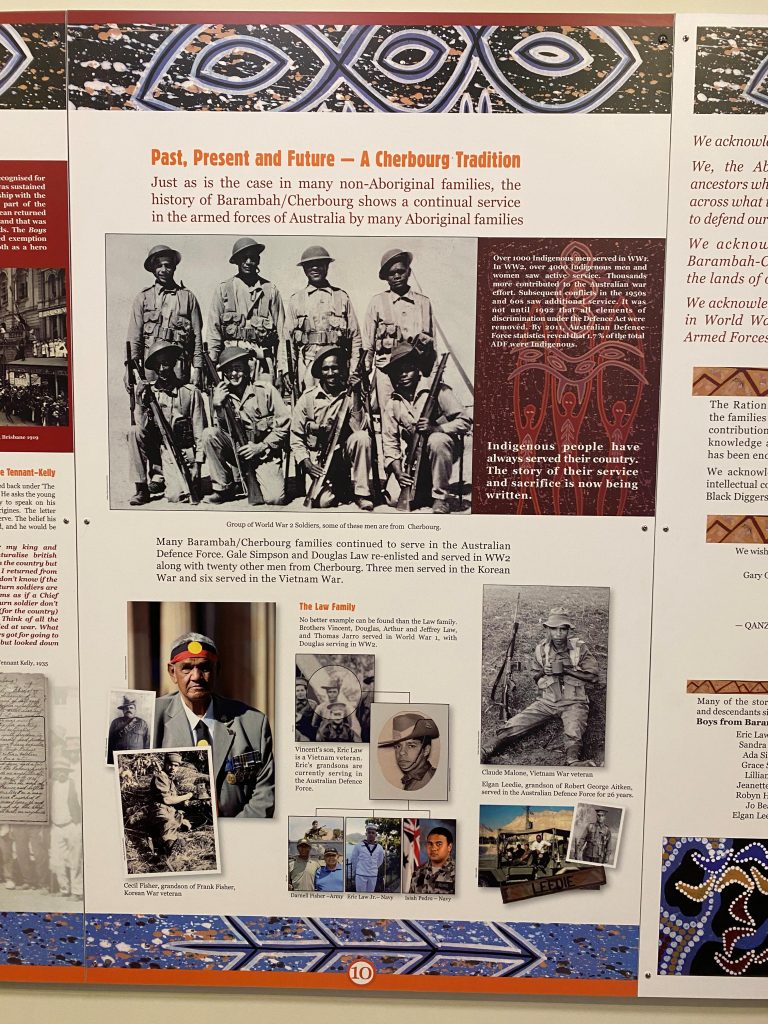
Nicola, the museum manager, learning of our military background draws us aside to show us a prized exhibit.
It’s a tapestry brought back from Egypt by an indigenous soldier after the First World War.
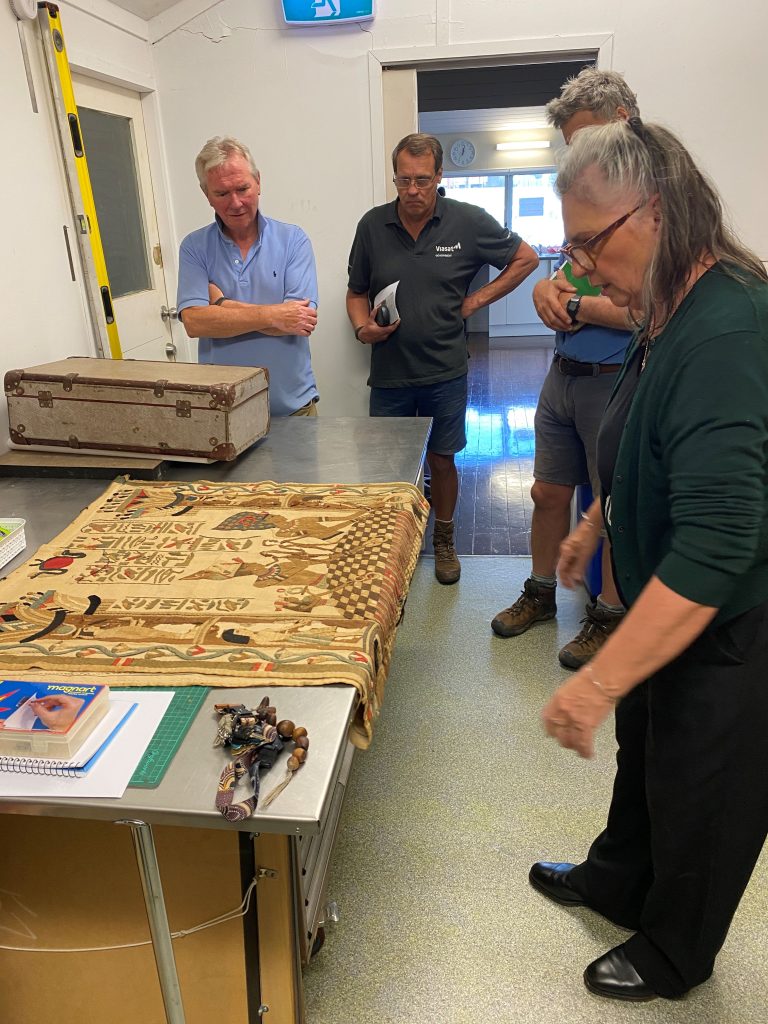
Hearing of our charity fundraiser she very kindly donates us a copy of the ‘Boys from Barambah’, the story of local black diggers from that war.
Among other things, it relates the attempts by full-blood Aboriginals to enlist and their rejection because they were ‘not substantially of European origin.
Only half-castes, it seems, were acceptable in 1917 despite the heavy loss of life – over 23,000 Australians killed, wounded or taken prisoner at the 42-day battle for Pozieres.
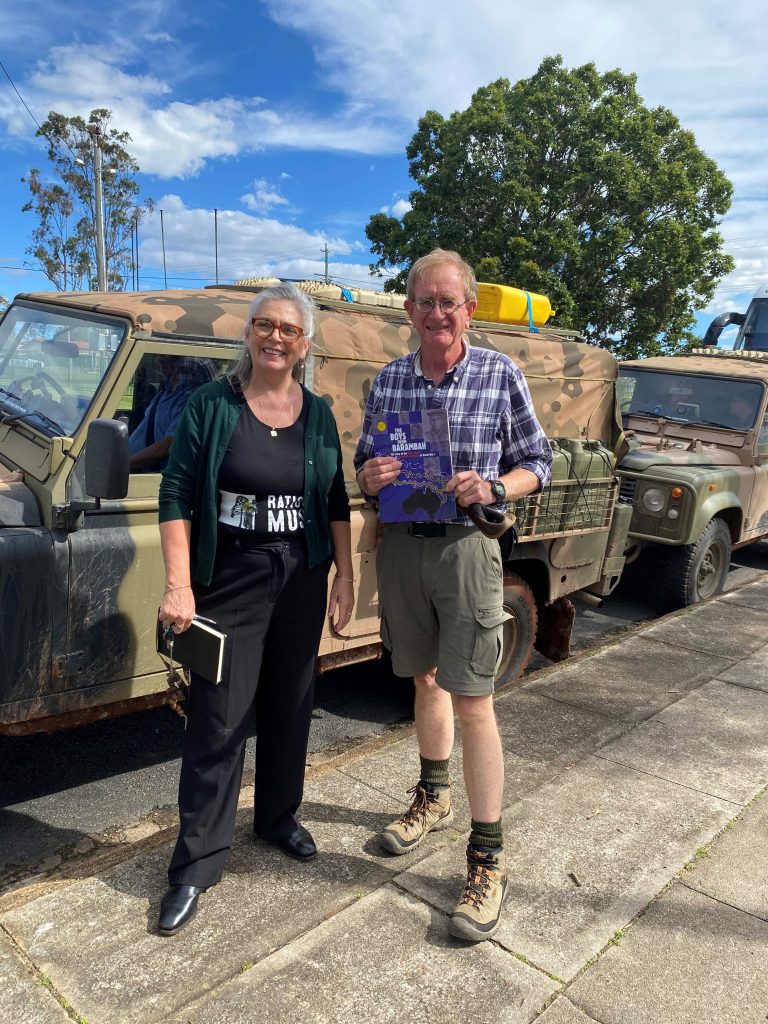
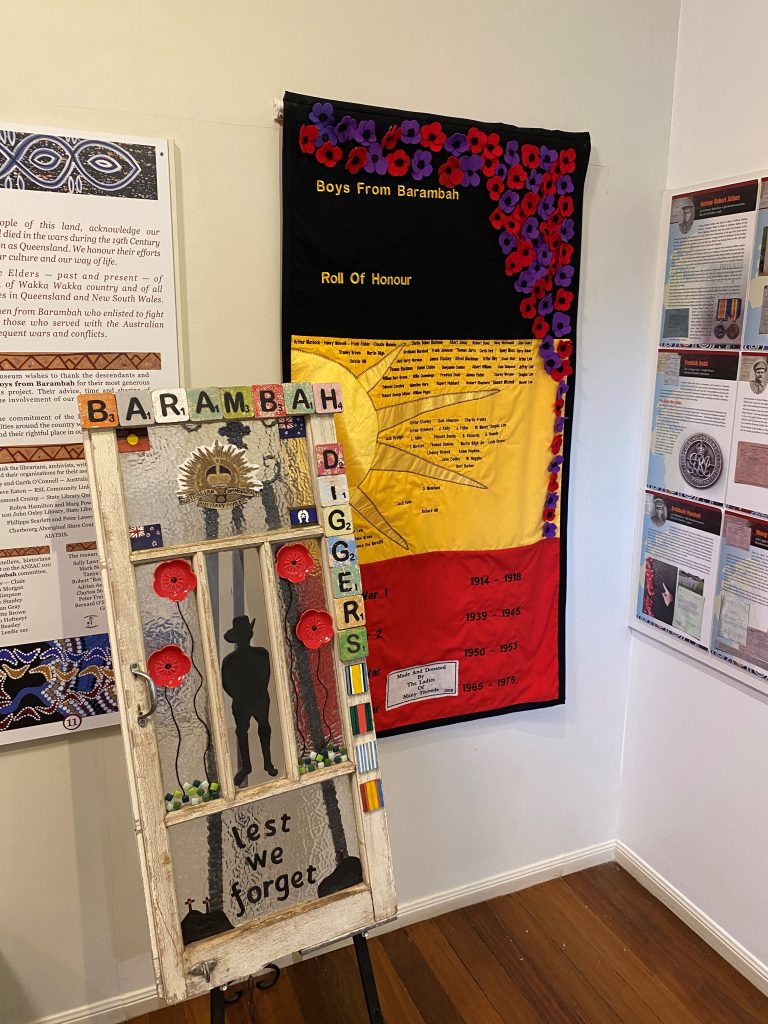
The Kingaroy RSL (Returned and Services League club) continues the military theme in the evening.
The last post, and the ‘Lest we forget’ ode is played at 1800 hours; a touching reminder about what welds us ex-soldiers together – that and two pints of ‘150 lashes’ and lots of sandbag stories, as well, of course.
We camp at the showgrounds that night under open starry skies. In the morning its 4 degrees and a heavy dew has settled.
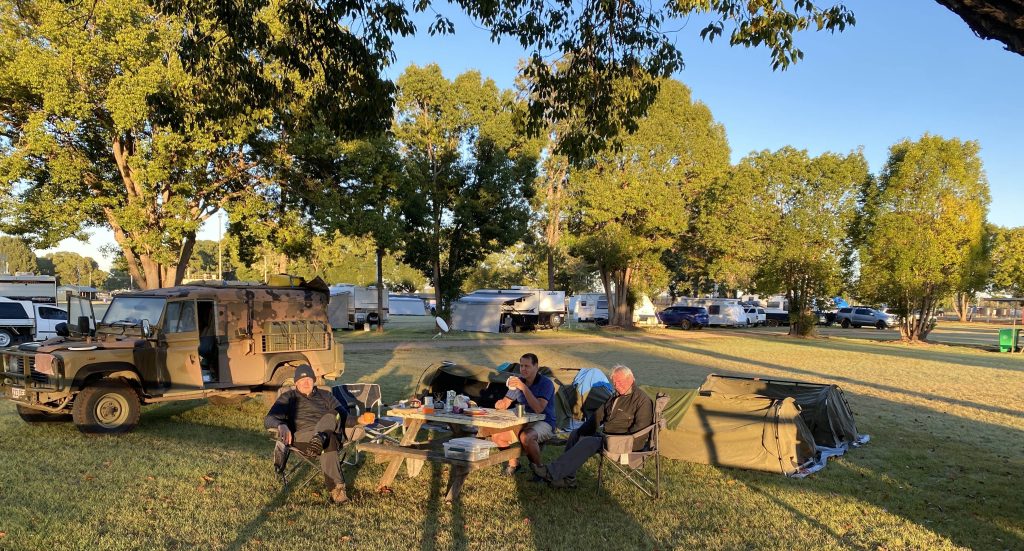
This journey is nearly at an end, but what isn’t at an end is the efforts of our four chosen charities to work to improve the lives of disadvantaged children and veterans still suffering from the effects of their service. Mates4Mates and Combat Stress do tremendous work for the veteran community in both Australia and the UK. The Smith Family and Onside do the same for the future generation of both our countries. So, if you haven’t already please share the link to this story or our gofundme page and encourage others to contribute.
